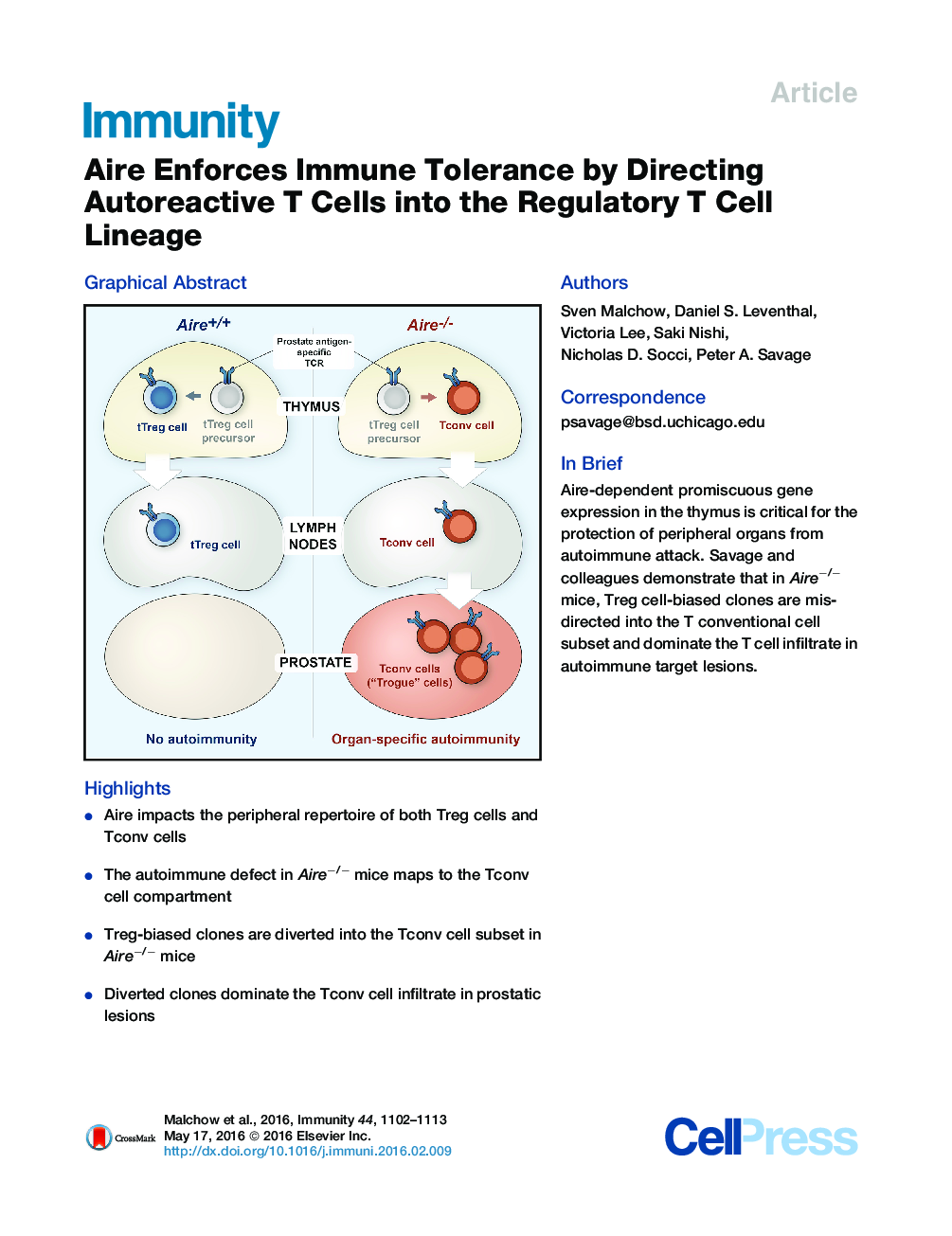| Article ID | Journal | Published Year | Pages | File Type |
|---|---|---|---|---|
| 3352879 | Immunity | 2016 | 12 Pages |
•Aire impacts the peripheral repertoire of both Treg cells and Tconv cells•The autoimmune defect in Aire−/− mice maps to the Tconv cell compartment•Treg-biased clones are diverted into the Tconv cell subset in Aire−/− mice•Diverted clones dominate the Tconv cell infiltrate in prostatic lesions
SummaryThe promiscuous expression of tissue-restricted antigens in the thymus, driven in part by autoimmune regulator (Aire), is critical for the protection of peripheral tissues from autoimmune attack. Aire-dependent processes are thought to promote both clonal deletion and the development of Foxp3+ regulatory T (Treg) cells, suggesting that autoimmunity associated with Aire deficiency results from two failed tolerance mechanisms. Here, examination of autoimmune lesions in Aire−/− mice revealed an unexpected third possibility. We found that the predominant conventional T cell clonotypes infiltrating target lesions express antigen receptors that were preferentially expressed by Foxp3+ Treg cells in Aire+/+ mice. Thus, Aire enforces immune tolerance by ensuring that distinct autoreactive T cell specificities differentiate into the Treg cell lineage; dysregulation of this process results in the diversion of Treg cell-biased clonotypes into pathogenic conventional T cells.
Graphical AbstractFigure optionsDownload full-size imageDownload high-quality image (218 K)Download as PowerPoint slide
